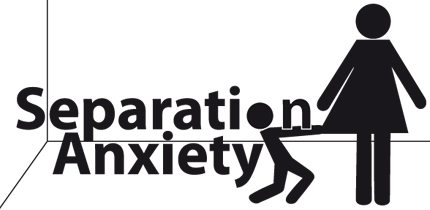Article in brief: Children and adolescents who share personal content online can get exposed to predatory risks and can destroy their image for a lifetime.

Engaging in Social Media (SM) platforms has become a common activity among children and adolescents since it provides a portal for entertainment and communication through various programs and social sites. Although, these sites give children and adolescents the opportunity to enhance their learning, there are major concerns and threats that we need to be aware of. Lack of awareness about these networks, applications, and programs can lead to situations that damage children’s reputation, which can cause emotional distress for a lifetime.
It’s very important to teach children how to be smart about their presence on social network platforms. They need to be totally alert that photos, videos and comments that are posted online cannot be taken back even if they are deleted because it will remain permanently on those platforms’ databases.
Schools and families should always play a complementary part in protecting children when it comes to the cyberspace world. Children and young adults’ experiences and activities online that are not monitored are more likely to be exploited by peers and strangers. Therefore, taking an active role in your children and teens’ activities will help them benefit from the wealth of valuable information online without being exposed to any risks.
Threats like bullying have moved from school grounds to online social sites where cyber bullies use mediums like “emails, text messaging, chat rooms, cellular phones, camera phones, web sites and blogs to spread derogatory and ostracizing comments” (Brown et al. 2006, p.2) which then become public and social issues.
According to ‘Smart learning program’ in the UAE, it has been applied in many public and private schools that aims to enable children and adolescents to be connected to the Internet by using tablet computers which showed success in allowing most of the students to use the Internet in the class room. This success in having a smart learning tool is a huge achievement, but it might cause a negative impact on their self-esteem and well-being. If schools don’t spread awareness by having ‘Cyber Protection Policy’ in their curriculum and campaigns, children risk having their minds corrupted by unhealthy content.
Based on the scholars Ringrose’s et al. (2012) investigation of teenagers experiences on Facebook in London, creating cyber protection policy in schools that can make children and adolescents aware about Internet threats and how can they defend themselves effectively against online strangers is extremely important.
They investigated that 10,000 children were upset from their online friends, 22% of children talked about pornographic content, and 18% of children talked about receiving violent content. Other areas were related to the encountered risks on internet platforms like YouTube, and 32% stressed on video sharing. The research shows that the large number of children’s distress was from their interaction with their online friends.
Such experiences could happen for some children or teenagers online in any country, but instead of throwing up our hands, saying “Oh, children these days!”, parents should remember that every generation thinks that they are normal and the younger generation are getting crazier. Parents need to ensure that their children are well-aware that Internet exploration opens a world of possibilities where they might be exposed to dangers by hitting the road to find the information highway.
Our young ones need to think twice before hitting the enter button to share their personal content online because what they post online can be used against them in the future. Taking an active role in showing interest in children’s online activities can help to protect them from sharing their personal information to strangers in the cyberspace that might destroy their image in the long-term future. They need to understand that what happens to any family stays within the family, but what happens online stays on Google forever.
Written in collaboration with Arabian Child organization. Visit www.arabianchild.org for more information about early childhood education in the United Arab Emirates.
References:
- Brown, Jackson, Cassidy. (2006). Cyber-Bullying: Developing Policy to Direct Responses that are Equitable and Effective in Addressing this Special Form of Bullying. Canadian Journal of Educational Administration and Policy. 57 (1), p1-36.
- Ringrose, Gill, Livingstone, Harvey. (2012). A qualitative study of children, young people and ‘sexting’. Available: http://www.nspcc.org.uk/globalassets/documents/research-reports/qualitative-study-children-young-people-sexting-report.pdf. Last accessed 4th Dec 2014.
Sign up to Sail Newsletter
Never miss another article!
Thank you for subscribing.
Something went wrong.

We are supposed to be sure about these things because some time it is dangerous to share things that are supposed to stay personal. I am always aware with this and very careful about my data.